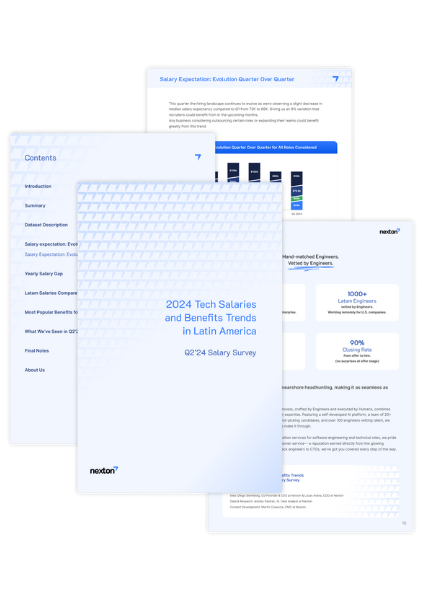When discussing popular JavaScript frameworks in the frontend developer world you can’t help but mention Vue.js and React.js. This podium, based on years of experience, company size and overall happiness, positions React at the top, but there is much to say about these two technologies.
Both Vue and React can be used for web development to productively build applications. Developers tend to choose React when focusing on the view layer for mobile and web applications, and Vue is most frequently used when working on more than one web interface or one-page applications.
Common and distinctive features that make these tools top picks on the developer landscape
Although quite different from each other, these two technologies share some common features and similarities, that help us understand why frontend developers love them. Both Vue and React update only objects that have changed, therefore consuming less time and resources than DOM manipulations. They also save time by speeding up the development process through their extensive libraries of components that make code reuse easy and increase productivity.

But, what makes them different?
- Syntax: React is basically a UI library but it does not offer state management and routing packages like Vue does. If you want to write a React app, you need to use a syntax extension to write HTML in JavaScript code, therefore making Vue easier to use and learn if you do not have previous Syntax knowledge.
- Being able to find qualified and available talent is also a big difference between these two tools. As a developer seeking work, you will find that there is way more demand for React than Vue. Regardless, both have big and active communities.
- Vue.js has many tasks that operate in the background making it more user friendly, specially for newbies. For example, if you want to call an API you need to first assign the results, and then separate them into the state. It requires you to actively tell the library what to do resulting, sometimes, in having to worry about repetitive tasks. Whereas React is more flexible and being focused on JSX it tracks updates and changes to HTML resulting in no need for rewriting.
- React focuses on immutability. Strings, for example, are immutable. If two objects are equal, then it’s simpler to test if they are immutable which allows performance optimizations. The virtual DOM automatically updates to reflect changes in the property or state of components. React compares versions before the updates with the virtual DOM to know what changed. This process is known as reconciliation. This makes React less complex and more efficient. Otherwise, finding what changed would be very difficult.
What is the best use for each of these tools?
One of Vue’s benefits is that as it is a progressive framework, it can be easily integrated into an existing project according to the needs of the project. On top of being quite flexible it is a cost-effective solution which makes it popular among startups. It can also be used for bigger projects as it has many companion libraries and a vast ecosystem of tools.
On the other hand, React is known to have been created to fulfill the needs of large-scale web projects. So if you wanted to use it for small projects or MVPs, it could be an excessive choice as it requires lots of code. Regardless, in the long run it will pay off because of its fantastic architecture. To make the most out of React, you need to be very adept in JavaScript as JSX allows you to take full advantage of all of JavaScript’s features.

What if I want to use React with TypeScript?
Don’t worry, TypeScript supports JSX. And in fact, using both of them together the code becomes simpler to use and read. You will have less mistyping problems as you must ensure component compatibility to avoid runtime errors.
What are the benefits that frontend developers highlight in each tool?
Vue.js
- Great documentation
- Simple to build one-page applications
- Smart programming patterns and style
- Straightforward learning curve focused on UI
React.js
- Extensive usage
- Vast package ecosystem
- Allows easy testing and debugging
- Elegant programming style and patterns
- Best option for video streaming platforms
- It is quite user friendly, and performs well with lots of data and UIs

To know which one is best for you, focus on your needs
To build interactive user interfaces and web apps both Vue.js and React play vital roles. If you are seeking a front end developer job you must know that both are valuable tools to use, the choice will depend on your ability as developer, and timeframe.
Integrating or migrating existing projects is easier and faster with Vue so startups will most likely use this tool, as preparing it for deployment is ridiculously fast. And they will need vue developers. On the other hand, React has a larger community and ecosystem, and bigger projects continuously seek experienced React developers.
In the end, both have their advantages and disadvantages. Take your pick! Each framework will help business projects achieve their goals. Speaking of goals, if one of yours is to find a challenging frontend developer job working for a US company, don’t hesitate to contact us. We will be delighted to help you get your dream job!


